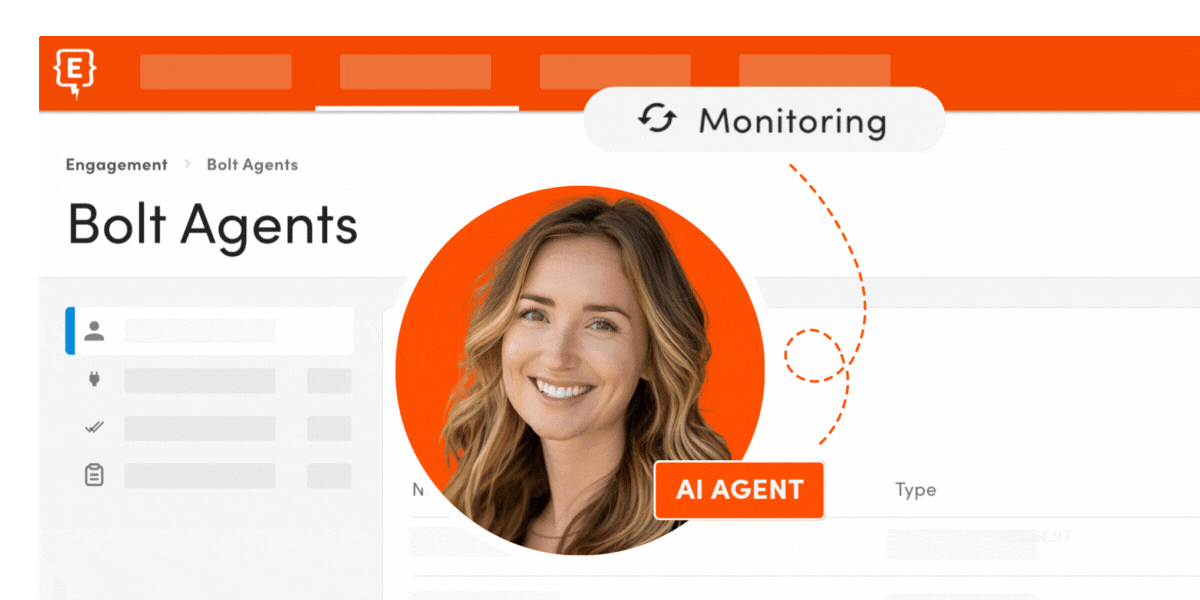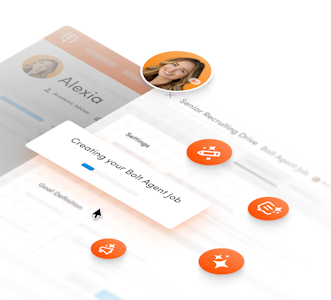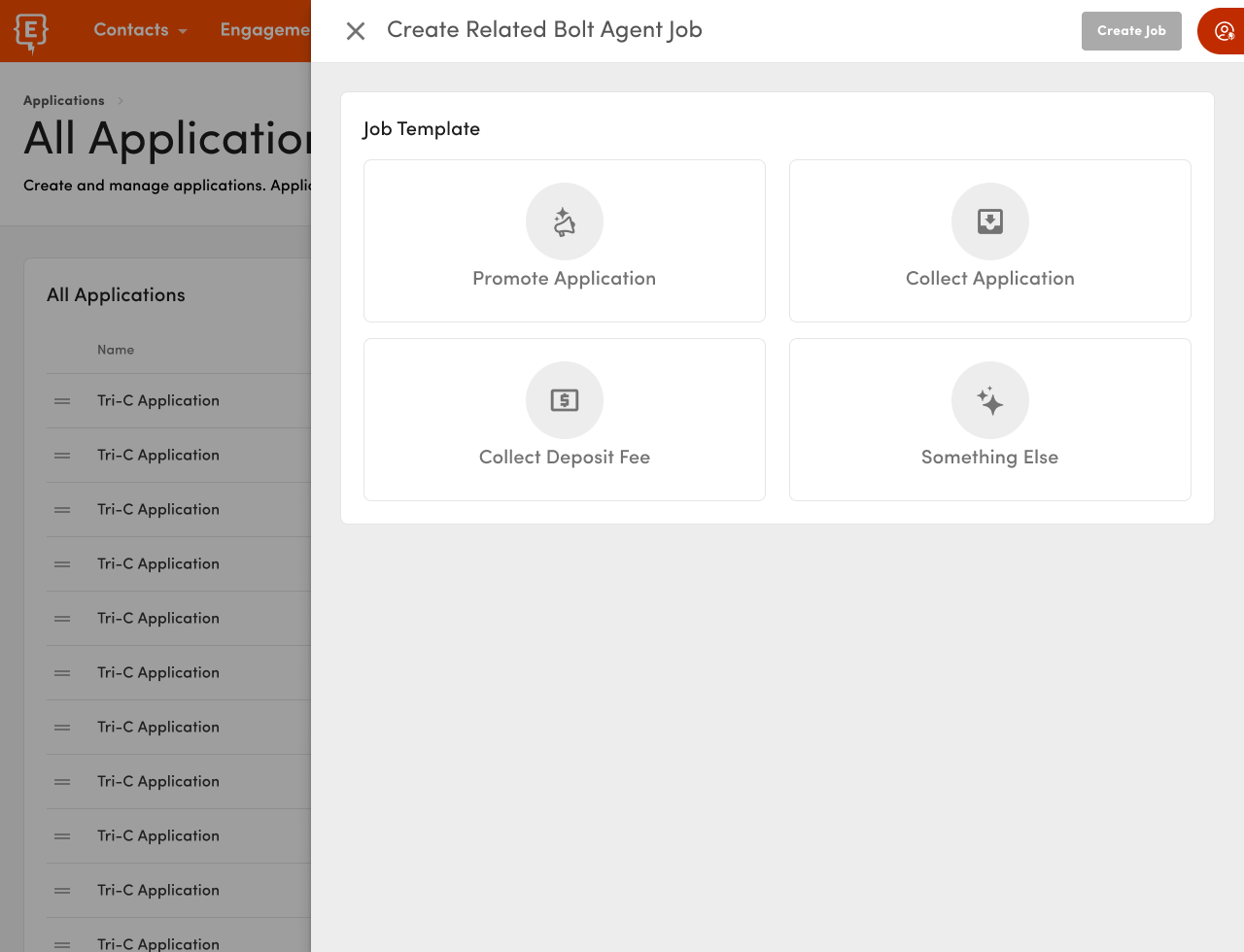How to Advertise to College Students? 10 Effective Campaigns
by Erin Newton · Dec 20, 2024
Many colleges and universities rely on word of mouth, alumni connections, and social buzz to generate interest from new and prospective college students. Unfortunately, this truth most often applies to larger state schools and well-known institutions.
But what about the rest of the colleges and universities dispersed throughout the United States? How can these admissions and enrollment teams advertise to college students while communicating the most compelling information possible about their campus?

This is where highly targeted, effective marketing campaigns come into play. Campaigns allow your entire team to focus on a single brand image that both attracts new students and creates positive buzz about your campus culture and brand identity.
If you want to know which marketing campaign ideas are the most popular this year, keep reading to discover our favorite campaign choices.
What is a Marketing Campaign?
A “marketing campaign” is a major building block of any new marketing initiative. The concept of a campaign revolves around a singular idea, goal, or objective. Important tasks are built around this goal for the purpose of marketing a specific product, service, or idea.
SproutSocial, a leading social media management platform, puts it this way:
“A marketing campaign is a promotional push or initiative carried out by a brand, typically tied to a big-picture business goal. Campaigns involve promoting content and creatives (think: ads, videos, photos, blog posts, copywriting) across various marketing channels (think: social media, email).”
The exact goals of any given marketing campaign can be as unique and varied as a business, school, or service provider. Marketers can (and are encouraged) to use creativity and innovation to make new campaigns stand out from the pack.
Importance of Well-Planned Campaign Strategy
Marketing campaigns don’t just happen spontaneously. It takes work, effort, and diligent planning to see them through from the initial brainstorming steps to fruition.
That’s why a thoughtful campaign strategy is so fundamental to eventual success—and for keeping students engaged. Marketing campaign strategies are important, because they:
- Define responsible parties – Determine who is in charge of which aspects of a campaign, which reduces confusion and frustration.
- Establish specific and measurable goals – Clarify the specific things that each campaign aims to achieve and provides measurable benchmarks.
- Aligns individual campaigns to the overall brand – Separate initiatives should always point back to the overarching mission, purpose, and vision. Disparate campaigns may take away from the school’s primary marketing objectives.
How to Advertise to College Students?
Fortunately, there is no “right and wrong” when it comes to college marketing efforts. Although you should always map out and communicate your plan effectively, the possibilities are nearly endless—especially in a digital one and one that's growing with new artificial intelligence solutions to support personalized communications at scale..
For this year (and beyond), check out our top ideas for college marketing campaign inspiration.
Nurture Campaigns
Nurture campaigns are popular across many industries and fields, as they’re specifically designed to compel an audience with personalized offers and information. Most often, nurture campaigns involve time-based email messages that follow up with leads and strengthen a connection over time.
These campaigns are an important part of reminding prospective students about your school and why it’s a good fit. You can use these messages to educate, persuade, or present an offer. They are not necessarily sales-oriented, but they are meant to help a reader (in this case, a student) stay engaged and feel as though they’re benefiting from the connection.
How to implement: To get started with a new nurture campaign, always identify your audience or segment and set up a specific objective to match. You also need to define the value of your messages and decide on the set time periods or intervals that are most effective for scheduling new messages. It may take a few iterations before you're comfortable with a nurture formula that works.
Referral-Based Campaigns
Referral-based campaigns are effective for colleges and universities, because most have a broad network of alumni, community partners, and even student ambassadors. These individuals serve as personal touchpoints to future students who may be great candidates for admissions.
A referral-based campaign needs participation and user buy-in, since it depends on a connected individual providing a referral to someone outside of the school’s current network.
How to implement: To kick off a referral system, you’ll need to build messaging that encourages the participation of current students, alumni, or others. Explain what you need from them and what you’ll be offering to new or prospective students. Then, plan to launch a targeted and engaging message to new referrals and recruits.
Freebies and Incentives
Many college marketers acknowledge the power of free gifts and other incentives when it comes to attracting new applicants. A marketing campaign built around trials or samples can cast a wide net at the top of the funnel and draw in a large number of prospects.
For this type of campaign, you might consider activities like waiving the application fee, providing a free t-shirt, or offering a free subscription to an app or service that students enjoy. If any action is required in order to earn the incentive, make sure to clarify what is expected.
How to implement: When you’re offering something for free, be sure to build a creative campaign that is fun, modern, and highly engaging. You can accomplish this through outlets like email, in-person events, or virtual event sign-ups. The sky's the limit!
Student Discounts
Plenty of colleges and universities partner with popular service providers, technology resources, or local businesses. As a college marketer, you can use these connections to offer targeted discounts to future or current students who might be interested.
Examples include offering a percentage off a laptop purchase after completing enrollment, or providing a coupon to the local college bookstore after registering for courses.
How to implement: Consider the community and business partners that are already in your school’s local network. If you have larger corporate sponsorships, see which incentives are available for use in your marketing campaigns. Advertise these incentives through outlets like admissions emails, the school website, or social media posts.
User-Generated Content
A user-generated campaign comes from working directly with your end users. In the case of colleges and universities, this most often happens in the form of current students.
Take a look at where and how you can gather this content from students, whether that requires collecting email submissions or simply connecting with them on popular social media platforms. User-generated content may include anything from longer text submissions, to images, to live video.
How to implement: Collect written submissions, photos, and videos from students that capture the essence of what you want to accomplish your marketing campaign. Combine and repurpose these with a polished look, so that you can release them under the school’s brand.
Educational and Informative Campaigns
Prospective college students (and their families) often have plenty of questions about the college enrollment process, financial aid, student life, and academics. As a result, it never hurts to construct campaigns that are purely designed to answer these important questions and make complicated processes more simple.
Not only does this type of campaign continue to spread the word about your school, it also provides exceptional customer service by offering practical guidance and solutions. In turn, you’ll build a positive emotional connection with students and families.
How to implement: Review some of the most common questions or roadblocks that your prospective students face on their journey to enrollment. Build user-friendly, knowledgeable content around these questions. Use an approachable tone and provide actionable next steps that make it easy for students to move forward.
Social Media Marketing
Let’s face it—social media is one of the most significant paths to reaching this generation of students. Whether it’s Instagram, Facebook, TikTok, or YouTube, it’s almost impossible to envision an effective college marketing strategy that doesn’t incorporate at least one of the most popular social media channels.
A social media marketing campaign is a clearly defined plan of attack for reaching and advertising to students on social media. An official campaign goes beyond a simple post idea and outlines factors like engagement, content creation, advertising, and more.
How to implement: Decide which social media platforms you want to focus on, as it’s always easier to have a targeted and direct strategy when there are many options on the table. If you need help from different personnel, be sure to communicate expectations from the start. You may need to enlist the help of a content writer, graphic designer, communications manager, or social media manager to set the campaign in motion.
Student Life (Behind-the-Scenes)
Before deciding on a school, many future college students want to know what attending is really like—and not only from a glossy marketing portrayal. You can effectively accomplish this (while keeping brand image in check) by creating student life and culture campaigns.
In addition to user generated content, life and culture campaigns advertise what it’s really like to live and learn on a specific campus. Here, you can also build content around extracurriculars, interpersonal relationships, and community values.
It’s important that the perspective of these campaigns is story-based and realistic; new students should resonate with the messaging and understand its inherent value.
How to implement: Think outside the box when it comes to content and imagery. Instead of stock photography, leverage content that’s captured from students, professors, or other staff members. For a refreshing viewpoint, you can even weave these snapshots into more formal messages or campaigns to create levity.
University Ad Campaigns
If your marketing team has extra dollars to spend on reaching potential students, running targeted ads is a great way to do just that. While any institution can run standard commercial print ads, your school's message might hold even more power with digital channels.
How to implement: First, choose the ad programs that align with your skills, target market, and budget. There are multiple options like display, native, Pay-Per-Click (PPC), Facebook and social media, and even email marketing. Creating optimized ads requires an understanding of how each platform works (including rules and compliance) and how to fine-tune an audience to reach the right people.
Remember, ad-based marketing strategies get expensive quickly. Just as you'd create unique copy to reach potential customers at a business, you'll do the same thing with higher ed advertisements. To prevent costs from spiraling, follow industry best practices and dedicate someone with specialized skills to ad management for your school.
On Campus Events
Hosting on-campus events is a powerful way to engage prospective students and give them a firsthand experience of your institution’s culture and community. Events like open houses, campus tours, workshops, and themed festivals provide an immersive touchpoint that digital marketing alone can’t achieve. These in-person interactions help build a deeper emotional connection, giving students and their families a chance to visualize themselves as part of your campus life.
How to implement: Plan events that align with your institution’s strengths and values, and make sure to communicate these through invitations and event branding. Promote events via multiple channels—email, social media, and your website—to maximize attendance. During the event, use interactive elements like Q&A sessions with current students or faculty, hands-on workshops, and behind-the-scenes tours. Don’t forget to capture photos and videos to create future marketing content and amplify the experience beyond the event itself.
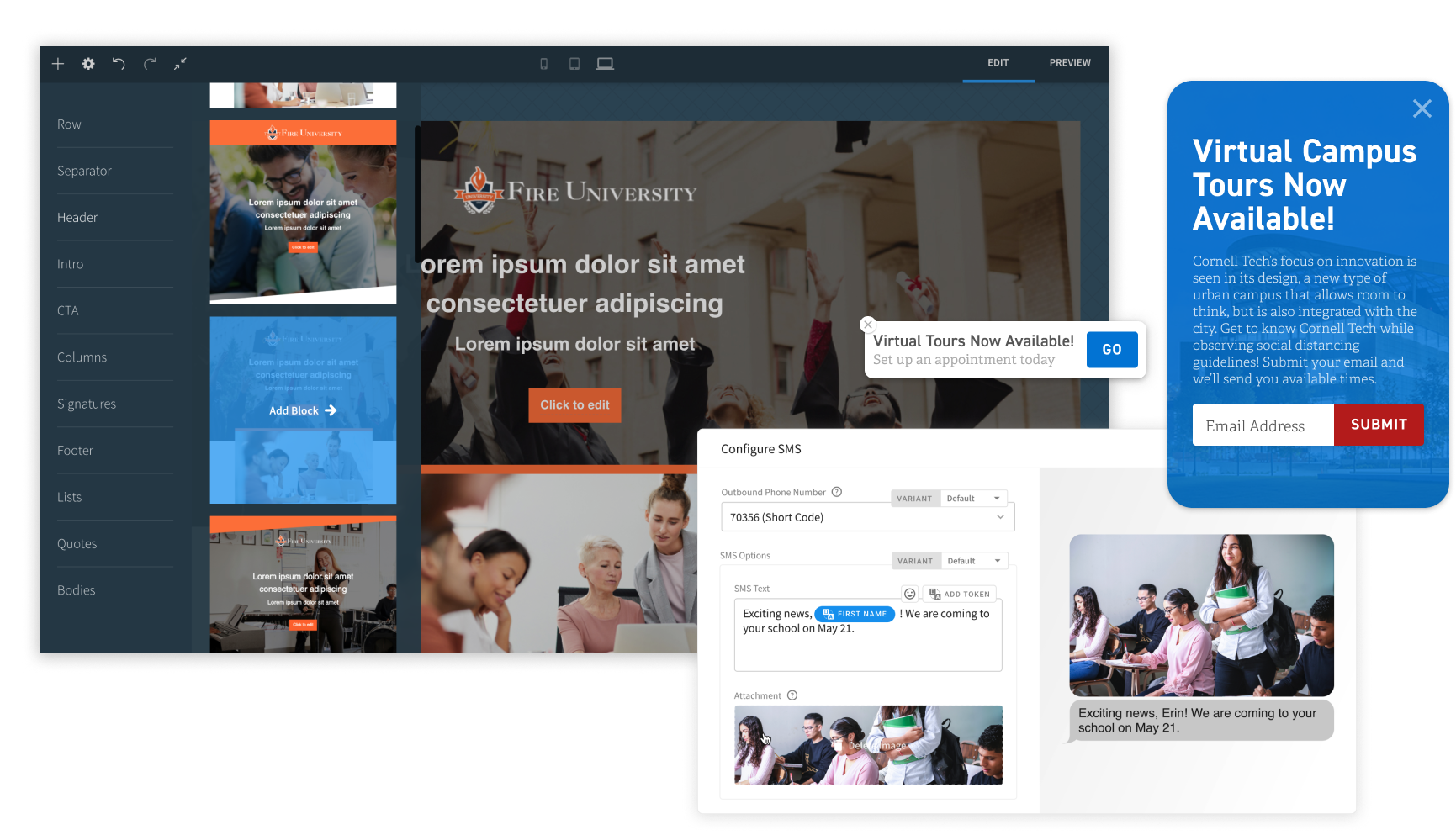
How to Scale Your Marketing with Automation
Personalization + automation can make admissions marketing campaigns more effective. Receive practical, step-by-step guidance for personalizing campaigns at scale.
Read the White Paper
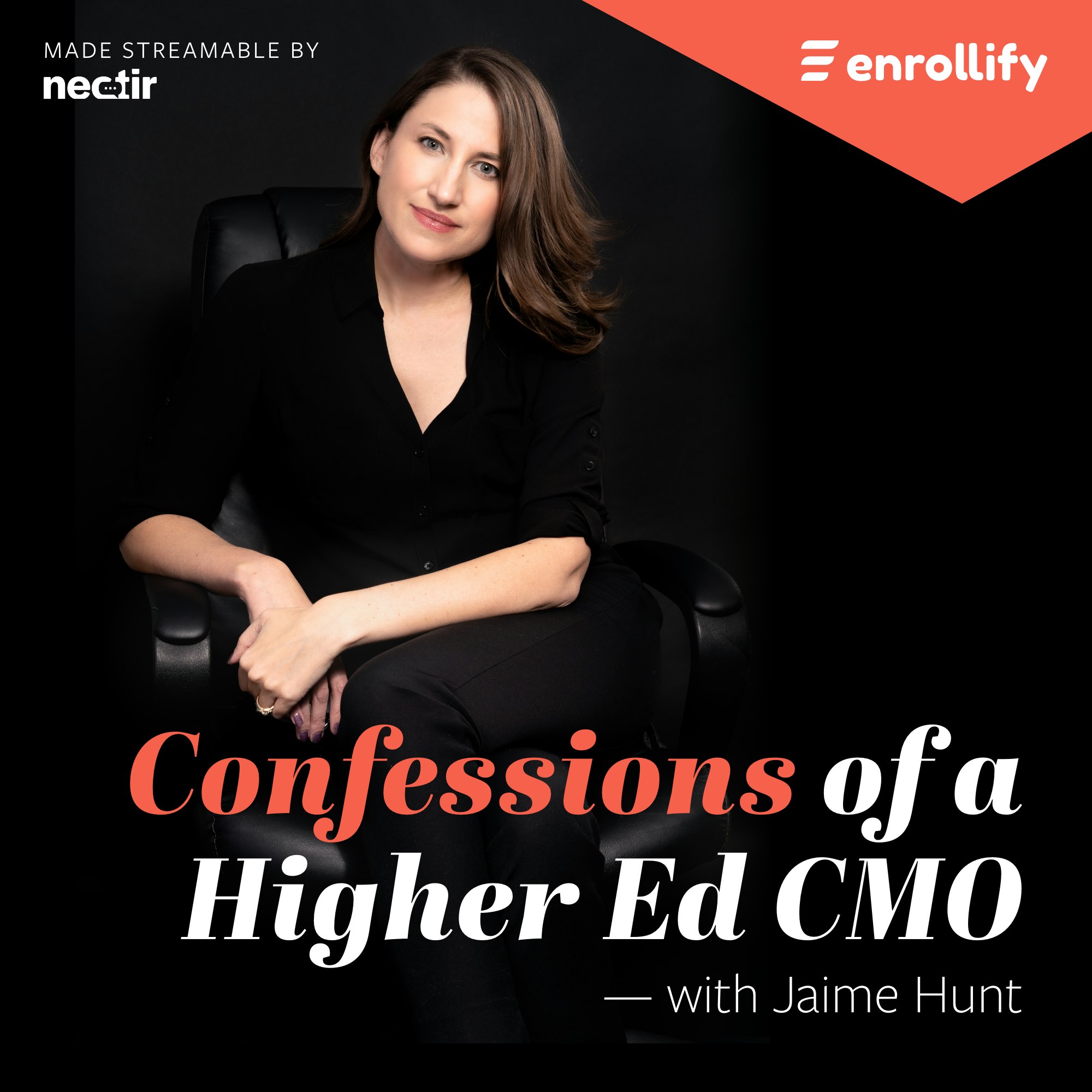
Listen to Confessions of a Higher Ed CMO
Join us for real stories behind campus campaigns, the evolving nature of student engagement, and the creative challenges in this unique field — plus tips, tricks and tools to elevate your strategy.
Tune In
The Importance of Campaign Strategies
A well-executed marketing campaign is more than just a series of isolated efforts; it’s a cohesive strategy designed to achieve specific goals and connect with students at different stages of their journey. In the competitive world of higher education, having a clear campaign strategy ensures your message is targeted, consistent, and impactful. A strong strategy helps you understand your audience, choose the right channels, and deliver content that resonates—whether that’s through social media, on-campus events, or digital ads.
Effective campaign strategies also allow for better resource allocation, performance tracking, and adjustments based on data-driven insights. By taking a strategic approach, institutions can avoid the scattershot effect of random marketing efforts and instead create campaigns that are purposeful and aligned with their enrollment and engagement goals.
How To Measure Campaign Success
In the same way that marketing campaign ideas can be varied, so too, can the results. What’s a win for one school may not be the same for a much larger or smaller institution, so it’s crucial to know which goals you’re aiming for when you measure campaign success.
To know whether your campaigns have been a hit (or a miss), you should plan ahead with the following steps.
- Know which measurable business goals you’re aiming for at the beginning
- Clearly identify the target audience (a specific higher education segment)
- Decide on key metrics ahead of time (for example, if you want to gather a certain number of new enrollments for a nurture or drip campaign)
- Identify a timeframe and an end dates for accomplishing your goals
- Have a plan in place for discussing campaign results and how to be proactive or make changes in future campaigns
Reach New Heights with Smart Campaigns
College marketing campaigns keep the needle moving on your marketing goals moving throughout the academic year. Whether you want to attract new prospects, increase student enrollment numbers, or educate your audience and community, proven marketing campaigns can help you accomplish those tasks.
A powerful marketing and CRM platform like Element451 not only helps you visualize the big picture of each campaign, but it can also allow you to analyze valuable data on campaign results. When it comes to driving sustainable growth, these are metrics that you can’t afford to miss.
Frequently Asked Questions (FAQs)
How do you attract students to an event?
Create engaging and relevant event themes that resonate with students' interests and needs. Promote the event through social media, email, and your website, using eye-catching visuals and compelling calls-to-action. Incorporate student ambassadors or influencers to spread the word authentically. Offering incentives like giveaways, exclusive content, or interactive experiences can also boost attendance.
How do you market to parents of college students?
Focus on messaging that highlights outcomes, safety, and student support services. Use channels parents frequent, such as email, Facebook, and direct mail. Provide clear, informative content about your institution's strengths, including success stories, career readiness, and campus resources. Address common parental concerns and emphasize how your institution helps their child thrive academically and personally.
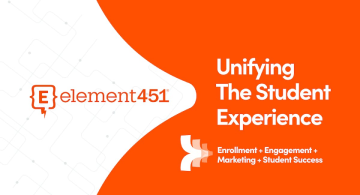
About Element451
Boost enrollment, improve engagement, and support students with an AI-driven CRM and agent platform built for higher ed. Element451 makes personalization scalable and success repeatable.
Categories
New Blog Posts
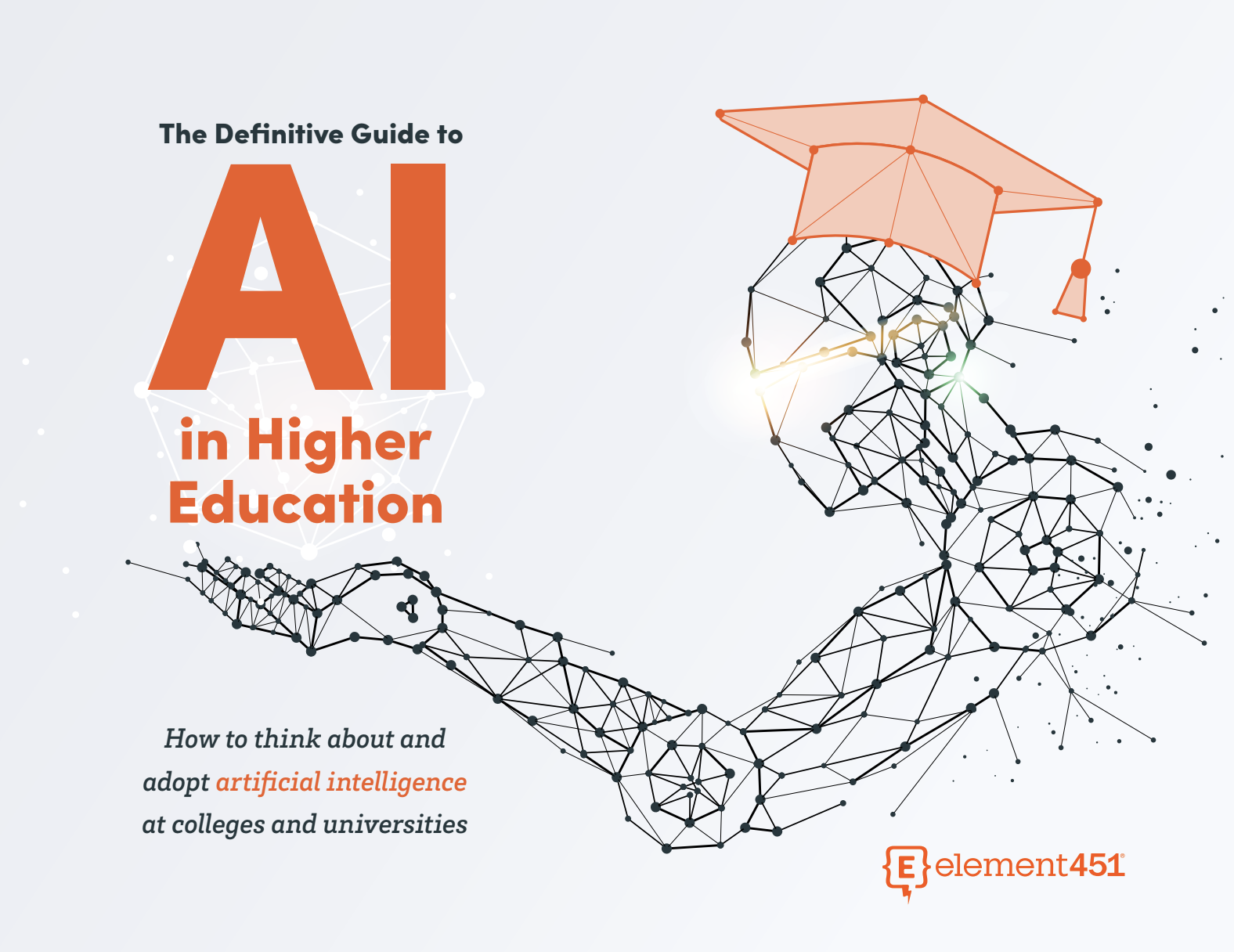
The Definitive Guide
AI in Higher Education
Bridge the gap between the latest tech advancements and your institution's success.
Useful Links
Related Articles

Talk With Us
Element451 is an AI-driven CRM and AI agent platform for higher education. Our friendly experts are here to help you explore how Element451 can improve outcomes for your school and students.
Get a Demo


